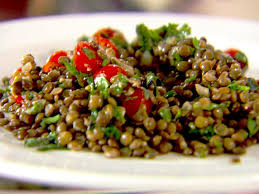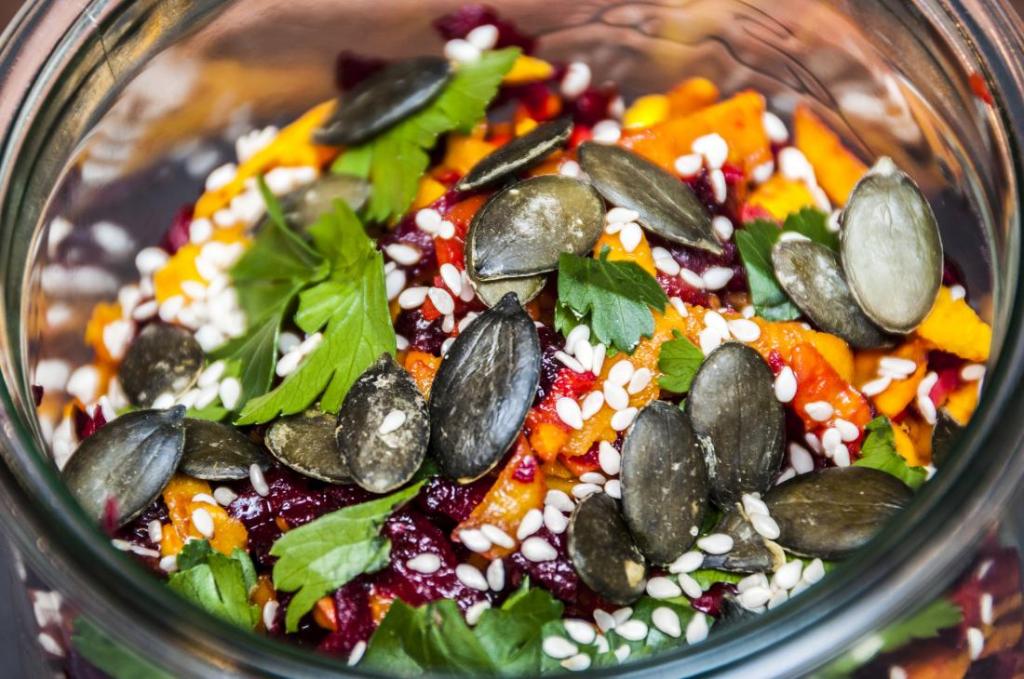Good plant based foods are out there that could feed your muscles with more proteins than you would have thought!
You wouldn’t have dreamed of turning from villain to warrior in one bound? Or have you thought of turning yourself into a protein powerhouse? Sounds more like a feat hard to come by for many of us who are riveted more to mindful eating and intensely deliberate over food choices. We regularly search for nutritional benefits in food we eat and look around for ingredients that are impressive with macronutrients.
Clearly buzz of years means differently to different people. A vegetarian diet “can be nutritionally superior to any other way of eating,” says Tallmadge. “It can be one of the healthiest ways to eat, because we know plant foods are loaded with nutrients to protect our health.”
So does ditching meat automatically mean equal or better source of nutrition? Will it help us to live longer and be healthier overall?
Let’s find out.
Proteins go to polls!
Proteins, like fats and carbohydrates are the most enviable energy source and are found in every cell. When viewed as a ‘nutrient of interest,’ protein wrests with other macronutrients for first place in vitality.
Human body is known to require 20 different amino acids and our body synthesizes only 11 of them (usually non essential ones). So, we must get remaining 9 essential amino acids from other sources. Traditionally animal proteins like meat, eggs and milk are considered complete proteins, meaning they provide all of the essential amino acids our body needs.
But there are plenty of plant based proteins sources out there as well. Beans, legumes, nuts, seeds, quinoa, leafy greens such as broccoli and kale and whole grains are excellent sources of protein. Some of them like Quinoa contain all the 9 essential amino acids that we need. Besides plant proteins run lower risk of causing carcinoma and type 2 diabetes.
As winter drags on and social distancing remain an unavoidable annoyance everywhere, we all look around for that little dose of happiness. While reaching out for a pint of ice cream or grabbing that extra slice of red meat might make you feel good in the short run, the rush you get from these caloric choices could leave you at the disappointing end of rush and nothing to show for it.
However, there are plant based foods that could make you feel happier, typically by lifting your mood or help in staving off depression or anxiety without having a negative impact on your waistline or health. For those among us who wish to avoid animal-related food product and look for more health-conscious options, vegetarian substitutes are a great way to make the real cut.
Besides, it is also an easy way to save the animals and the cruelty that goes with it. Vegan, vegetarian, or a meat eater; if you look around for healthy super food options, these protein surrogates are a great way to swap meat without settling for less.
Black Beans

Packed with fiber, potassium, folate, vitamin- B6 and phytonutrients, black beans are a good source of anti oxidants and work hard on anti inflammatory properties. You could replace shredded beef or chicken as the main ingredient or use these beans as a base for veg burger Pattie. Each one cup serve carries 15 grams of protein which is equivalent to 50 gram of pork loin or 80 gram of chicken drumsticks.
Butter beans

Delicate in texture and starchy yet buttery in consistency, these beans are one serious ingredient for great many recipes. Excellent source of minerals like iron, copper, manganese, calcium, magnesium and potassium, each one cup (128 grams) serve measures equivalent to ½ cup (64 grams) of scrambled eggs. One of the favorite substitutes for meats in homemade veg burgers, this bean is also the vegan option for soups that share meat in their recipes.
Soybean

Soybean sources nearly as many essential amino acids as animal proteins. Fresh version is available as edamame while yellow ones are the mature beans. A good source of protein –one cup serve is equivalent to 75 gram portion of salmon or 180 grams of cottage cheese- soybeans also lay out a happy dose of B-vitamins. Considered as a main stream meat substitute, it’s a good aromatic swap for chicken and to a variety of dishes, from Asian stir fries to BBQ and even as a vegan substitute for scrambled eggs.
Replacing animal protein with soy protein is a smashing way to reduce body weight, manage blood sugar and get rid of bad cholesterol and triglycerides. One serving a day (one cup soymilk, ½ cup tofu or soybeans) is also effective for cancer prevention. The phytochemicals in soy prevent tumors from creating blood vessels and thus impede tumor growth.
Buckwheat

This is a gluten free energizing and nutritious alternative to carbs like white rice. One cup serve of this super food has 6 grams of protein which is equivalent to one large egg. Buckwheat granola or pancakes could be a breakfast favorite if you pair them with coconut milk. Great to taste when added to raw deserts, cereals and home-made muesli bars, buckwheat is an incredibly healthy and nutritious food. You can also toss them through soups, salads and well practically any dish you like, as the taste is mild and slightly nutty.
Quinoa

One among the few plants that could provide you with all the 9 essential amino acids, one cup serving of this gluten free, high protein food has ‘more bounce for an ounce’ value and measures up to one slice of non-fat mozzarella cheese. High on fiber, quinoa is good on manganese, B-vitamins, iron, potassium, calcium, phosphorus, vitamin-E and whole lot of anti oxidants. Quinoa tastes heavenly in soups and stews. Since it has low glycemic value, you could swap it for ground beef in burger or BBQ sandwich. Try a vegan quinoa scramble for breakfast and you would be bowled over by its flavorsome tang.
Tempeh

Tempeh, a rich source of complete protein, is a traditional Indonesian fermented food. It is made by cooking soybeans and fermenting them with a starter culture or mold called rhizopus oryzae for at least 2 days. Fermentation over, the soybeans get stuck together into a dense cake by a white mold. It then becomes sliceable and could be pan fried like tofu. Fermented and easy to digest, tempeh is an excellent meat substitute and looks and tastes incredible. Sweet & sour chicken, BBQ sandwich or chicken nuggets; you could replicate all with vegan and vegan friendly tempeh. Each 100 gram of this wonder food contains 20 gram of protein and is equivalent to 30 gram protein in 100 grams of chicken breast.
Hummus

Surprisingly one of the easiest dishes, you can make this high fiber, low glycemic super dip all by yourself by blending chickpeas, a garlic clove, extra virgin oil, tahini (a paste made from sesame seeds, olive or vegetable oil and salt), lemon juice and salt. This amazingly tasty dip is an ideal vegan swap for traditional meat pate’. It also pairs well with sandwich as delectable spread and could replace meat, cheese and other calorie packed spreads and dressings. Each 100 gram serve has 8 grams of protein and is equivalent to one cup of skimmed milk or three spoonful of minced beef.
Ezekiel bread

Ezekiel bread is a delicious, flourless loaf made from sprouted whole grains and legumes including millet, barley, spelt, wheat, soybeans and lentils. It’s named after the Old Testament verse Ezekiel 4:9, which reads: “Take wheat and barley, beans and lentils, millet and spelt; put them in a storage jar and use them to make bread for yourself.” Rich in flavor and dense in texture, one slice of this bread contains 4 grams of protein. A complete source of all essential amino acids it goes easy on the gut since sprouting process breaks down starches and releases enzymes that rejig carbohydrates. Sprouting also unlocks vitamins and minerals that turn them savory too.
Lentils

Typically legumes, lentils are high in fiber, magnesium, potassium, iron, folate, copper, manganese, and various other nutrients. These are among the best sources of plant-based protein and an excellent choice for vegetarians and vegans. Each serve of one cup (200 grams) of boiled lentils contains 18 grams of protein. Other high protein legumes that serve equally well include soybeans, kidney beans and chickpeas.
Brussel sprouts

Bursting with vitamin-C and cancer-fighting glucosinolates, Brussels sprouts are one of the most potent cold-weather super foods. Mere half cup (78 grams) of this high protein veggie could provide you 2 grams of protein. “No! You wouldn’t gag over the offensive smell of cruciferous veggies cooking or mushy middles”. Simply season the sprouts with salt, pepper and olive oil or you could add 2 cloves of crushed garlic and slow roast at 425 degrees for fifteen minutes until darkest brown. You could even splash a bit of balsamic vinegar on top to make it more exciting. You will love them!! Even picky eaters won’t say no to this amazing cook.
Jackfruit

This could turn out to be your vegan favorite. Jackfruit might be huge in places like Philippines, India, and Indonesia. A single fruit can weigh up to 100 lbs. Resembling meat in texture( flesh is all fibrous) with somewhat similar looks, it has mild flavors and is easy to spice and cook. It is all rage for vegan tacos, nachos, pork sandwiches, curry and a number of Asian recipes. Do try it as it’s a unique experience and packs nearly 3 grams of protein per cup. It’s also up there in vitamin-C and fiber and rivals bananas for potassium.
Guava

With 4.2 grams of protein per cup, guava definitely tops the list of high protein fruits. If that’s not enough, guava serves 4 times your daily vitamin-C needs in a single serving!! Eat all by itself, add it to sweeten a smoothie, pair it with Greek yogurt or simply mix with fruit salads for a perky and protein-rich new taste. Packed with antioxidants this fruit is an excellent source of fiber.
Avocado

A close second to guava in the protein stakes with an impressive 4 grams per cup, avocado is a perfect breakfast that is genuinely delicious and could turn a simple toast into a healthy flavorsome meal. A show stopper in salads, avocado is also one versatile food that pairs well with your nutrition requirements.
Dried Apricot

“Dried?” This could put you off, but surprisingly this one is far more loaded with protein than a ripe wet one with 2.2 grams per one cup serve. You could munch them down straight from the pack or mix them into your breakfast cereal.
Almonds

Each ¼ cup serving of this wonder nut contains 12 grams of protein or equivalent to one cup of full fat milk if you choose one tbsp of almond butter. Energy rich almonds also contain nutrients, minerals and antioxidants and source protein, calcium, magnesium and iron too. Since the almond butter pairs well with fruits like apple, pears or banana, you could stir a spoonful in your smoothie, spread on toast or lick straight out of jar.
Kiwi fruit

Savor a Kiwifruit if you haven’t done so far and experience a magical sensory explosion of flavor that would leave you searching for more. It contains a fairly respectable 2.1 grams of protein per cup, not to mention nearly twice your daily requirement of vitamin-C. Simply cut one in half and dig in. You won’t regret it!
Blackberries

With 2 grams of protein per cup serving, we could be staring at the bottom of the protein vat, but blackberries still have more to offer which is enough to make to our favorite’s list. They pack in plenty of fiber, vitamins and minerals for a good healthy snack.
Pumpkin seeds


Pumpkin seeds, also known as pepitas, can be tucked away with or without shells. Once scooped out of the pumpkin and freed of flesh, this super food turns into a delightful snack when light spices are added and then roasted for 15-20 minutes at 350 degrees. Whole roasted pumpkin seeds in their shells contain about 5.2 grams of fiber per serving, while shelled one contain just 1.8 grams.
Rich in other nutrients, including magnesium, a quarter cup of pumpkin seeds pack nearly 42 percent of a person’s recommended daily intake of magnesium and 9 grams of protein.
That’s not meat protein yet is dependable and so easy to cook!!
For someone who doesn’t eat meat, it’s exciting to try Beyond Meat Burger and to see if it really lives up to its name. The plant-based burger looks, cooks and makes the grade like beef. Carrying all the juicy, meaty deliciousness of a traditional burger, this super food comes with the upsides of a plant-based meal. If it does fit in to your choice, the elegant burger that looks and tastes like meat will actually have 20 grams of delicious fatty plant-based protein that could leave you wondering if it’s made out of plants!
To every meat lover who asks you where you get your protein from – the answers could be confusing and may sound a bit thick. For meat lovers anything vegetarian or vegan has little nutritional value, is ridiculously bland and not a perfect meal for those who are always on the go.
Vegetarians on the other hand associate their foods to a lower risk of heart disease and low-density lipoprotein cholesterol which could help in managing blood pressure, hypertension and type 2 diabetes. These are the people who buck the trend to have lower body mass index, lower overall cancer rates and lower risk of chronic diseases.
Whatever…Good taste or easy protein, there is certainly no call for veg vs non-veg. What matters most is, how you choose between sustainable foods that are flush with proteins especially when there is no one protein like “one size fits all”.
So, choose smart, make peace with your plate and eat healthy!!
